IUSSI Meeting 2018 in Guarujá, Brazil
Every four years, entomologists from all over the world come together to talk about their favourite topic: social insects. In August 2018, the international meeting of the Union for the Study of Social Insects (IUSSI) was invited to Guarujá, a small Brazilian holiday resort on the Atlantic coast.
A Photoblog contribution compiled by Julia Giehr 

This year, many scientists took the chance to spend some extra days in Brazil, for example, to risk their lives in the Amazon, to explore the metropolitan area São Paulo, or to enjoy life at the Copacabana (Rio de Janeiro). In my case, together with some members of our lab, we decided to leave the myrmecological world and take the chance to meet up with several stingless bee researchers around São Paulo before we went to Guarujá.
- Mandaguari (Scaptotrigona depilis)
- Moça-branca (Frieseomelitta varia)
- Uruçu amarela (Melipona mondury)
- Mirim-preguiça (Friesella schottky)
- Lambe-olhos (Leurotrigona muelleri)
- Jatai (Tetragonisca angustula)
(Thanks to Cristiano Menezes & Stephanie Wendt for identifying the species – click to enlarge)
We were heartily welcomed at the universities and institutions and gained insight into stingless bee keeping. We immediately fell in love with the amazing variety of stingless bees, and some of us secretly forged plans to take them home. Although, as the name says, stingless bees are not armed with a poisonous sting, as their colleagues the honey bees, we had to learn that these little guys have their own way of defending the nest. This especially hurts in the case of the ‘dog bees’ (Arapuá – Trigona spinipes), which can be aggressive if they get disturbed and are very hard to get rid of once they have bitten on to your skin or clothes.
- Iraí (Nannotrigona testaceicornis)
- Mirim-preguiça (Friesella schottky)
- Mirim (Plebeia droryana)
- Moça-branca (Frieseomelitta varia)
- Mandaguari (Scaptotrigona depilis)
- Jatai (Tetragonisca angustula)
- Arapuá (Trigona spinipes)
- Arapuá (Trigona spinipes)
We were very lucky and got the chance to look into several nest boxes of (mainly) harmless species. Surprisingly, stingless bee nests contain impressive physical structures with separated brood cells and honey pots. As the pictures show, the nest architecture varies with species, and all cells are arranged carefully.
To our pleasure, Brazilian campuses are also inhabited by a variety of gorgeous ant species, and although we had a tight schedule, we took the chance to document some of our findings.
- Pheidole oxyops
- Atta sexdens
- Cephalotes depressus
- Cephalotes clypeatus
- Polyrhachis
- Neoponera villosa
Together with a group of Brazilian scientists, we set out for Guarujá on Sunday the 5th of August, where the IUSSI meeting was officially opened with a large welcome reception. Everyone was welcomed with little snacks and, besides soft drinks and beer, a delicious variety of typical Brazilian Caipirinhas.
 During the following days, the daily scientific program was opened and closed with fascinating plenary talks. All symposia organizers did a great job and compiled a diversified program with many great speakers and intriguing presentations. The poster sessions took place in the evenings, and the presenters additionally got the chance to briefly promote their results during the “Data Blitz” session in advance. The conference center next to the beach and the small restaurants around the hotel provided nice spots to meet with colleagues during the breaks or in the evening.
During the following days, the daily scientific program was opened and closed with fascinating plenary talks. All symposia organizers did a great job and compiled a diversified program with many great speakers and intriguing presentations. The poster sessions took place in the evenings, and the presenters additionally got the chance to briefly promote their results during the “Data Blitz” session in advance. The conference center next to the beach and the small restaurants around the hotel provided nice spots to meet with colleagues during the breaks or in the evening.
 On the last day of the meeting, the scientific program was closed by awarding the “Best Student Poster” prizes and the announcement of the recipient of the Hamilton Award 2018. With the latter, Jacobus Boomsma was honoured for his outstanding achievements in the area of social insects, and during his speech, he provided an insight into his career.
On the last day of the meeting, the scientific program was closed by awarding the “Best Student Poster” prizes and the announcement of the recipient of the Hamilton Award 2018. With the latter, Jacobus Boomsma was honoured for his outstanding achievements in the area of social insects, and during his speech, he provided an insight into his career.
In the end, the meeting was closed with the conference dinner, which was accompanied by fantastic live music. The conference center employees organized a huge buffet, which was topped off with delicious cakes and other desserts. After five demanding days, which were mainly spent sitting, most of the attendees did not hesitate to demonstrate their skills on the dance floor.

In summary, all IUSSI meetings are characterized by a well-organized scientific program and a friendly atmosphere, which makes it a pleasure to attend the conferences and meet colleagues from all over the world. I really appreciate that I had the opportunity to take part in this meeting, and I am looking forward to the next international conference in San Diego 2022.


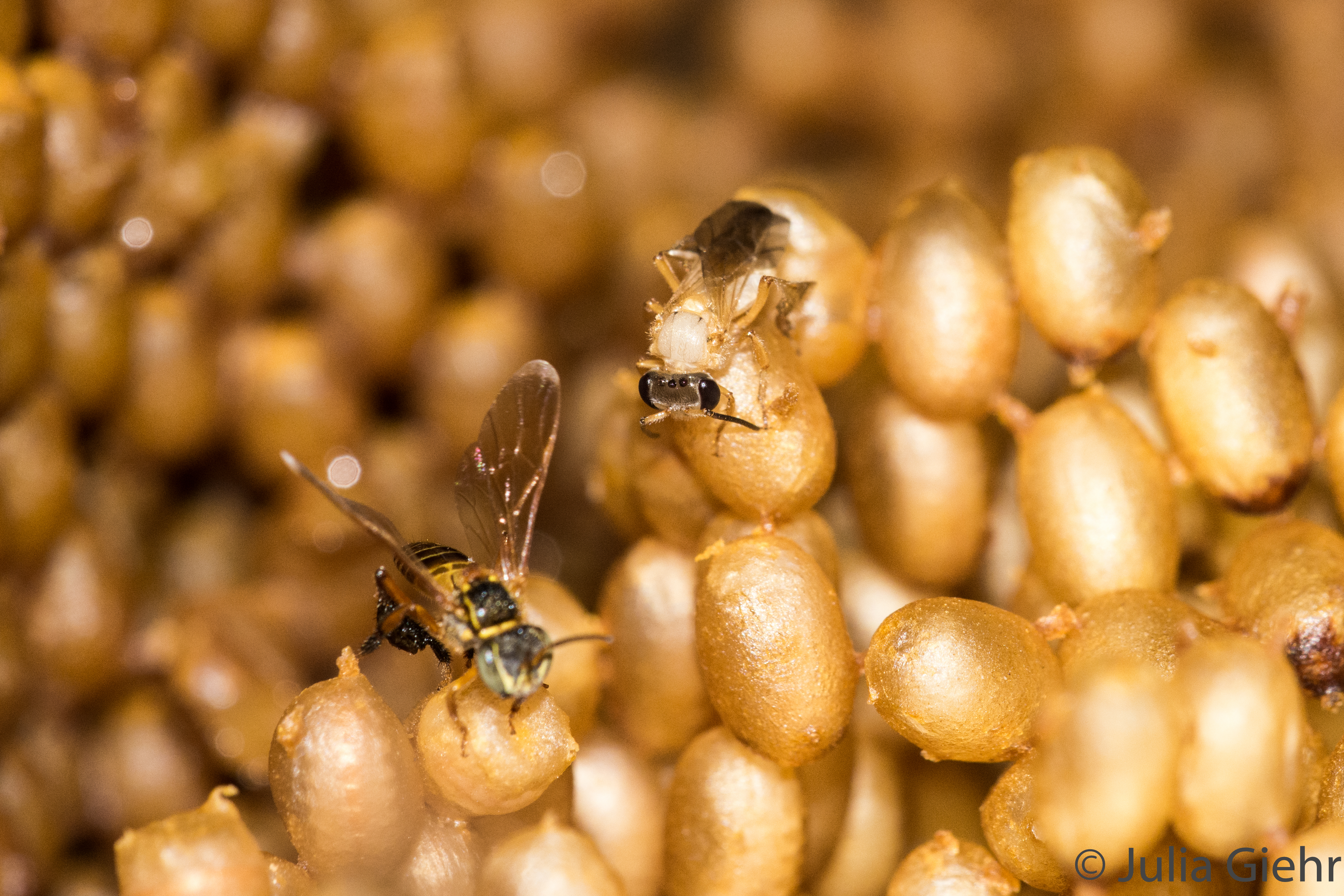







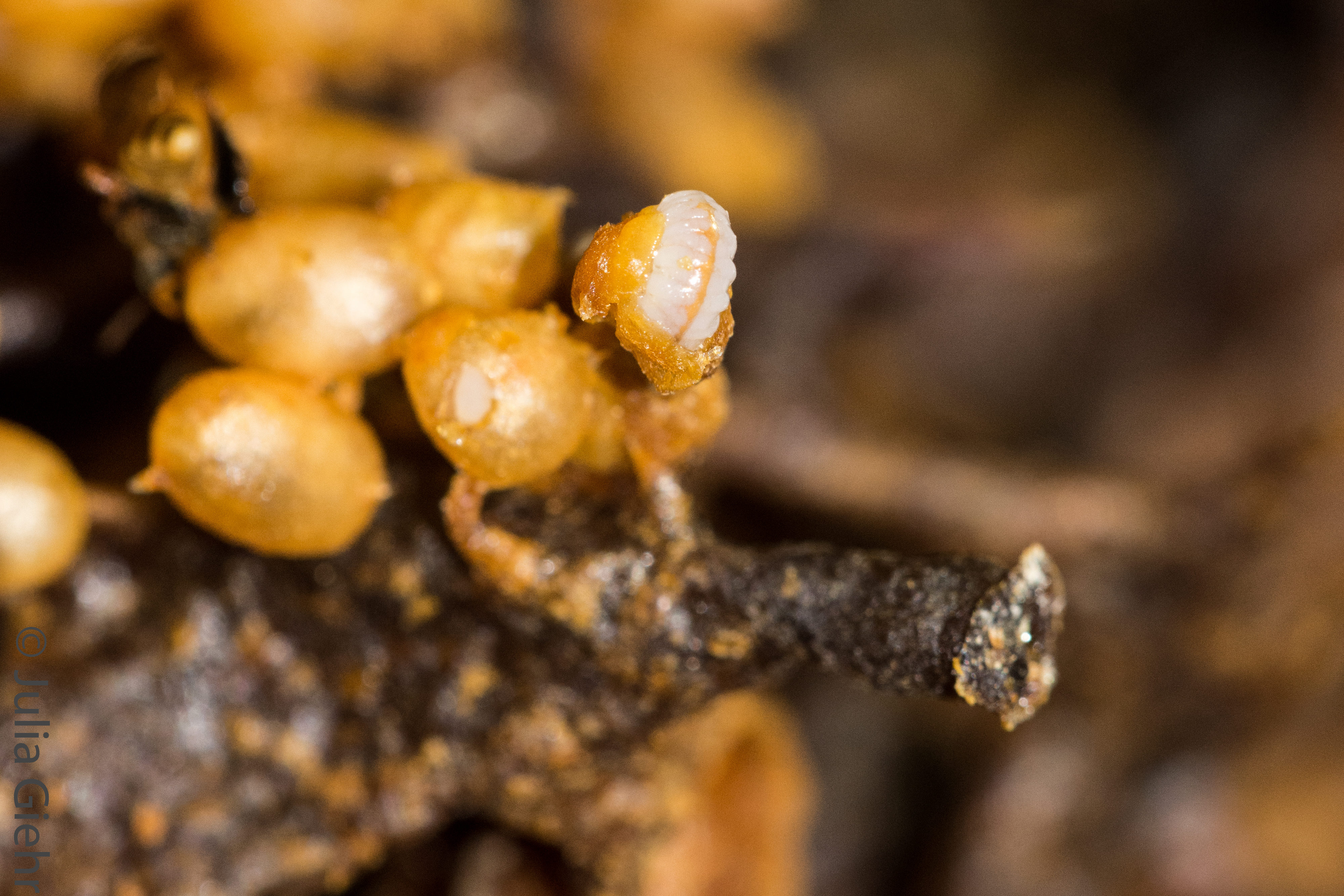




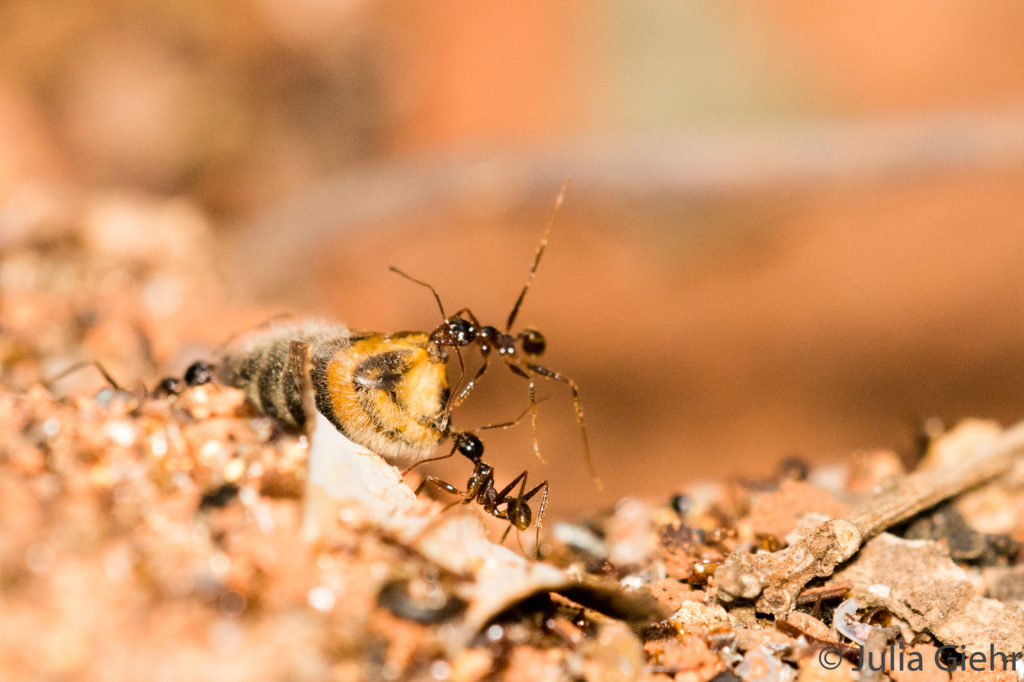
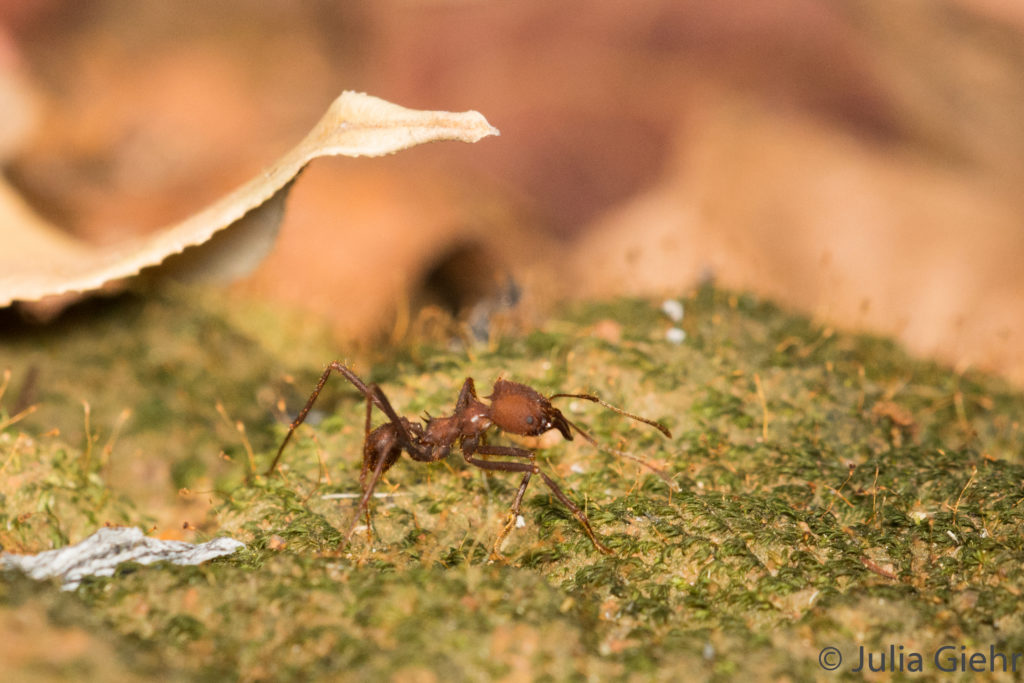
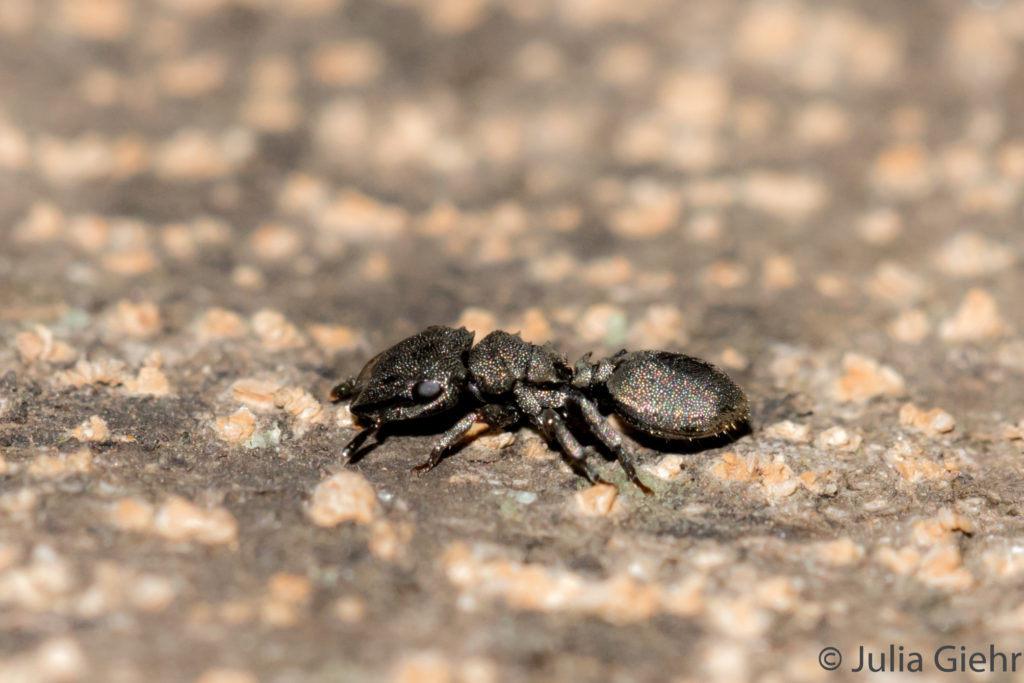
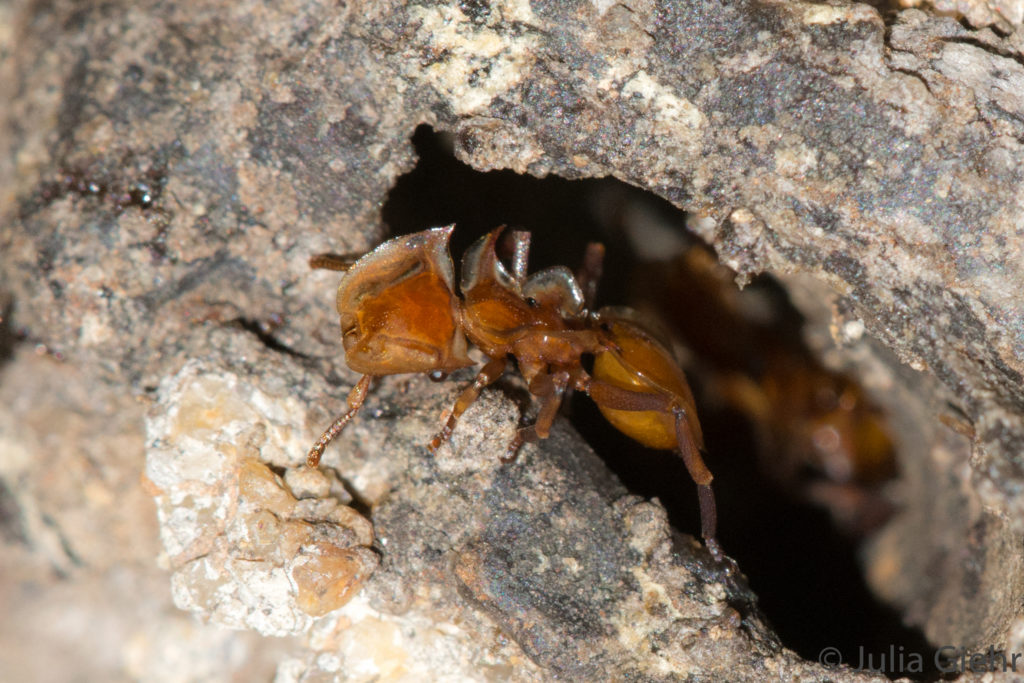
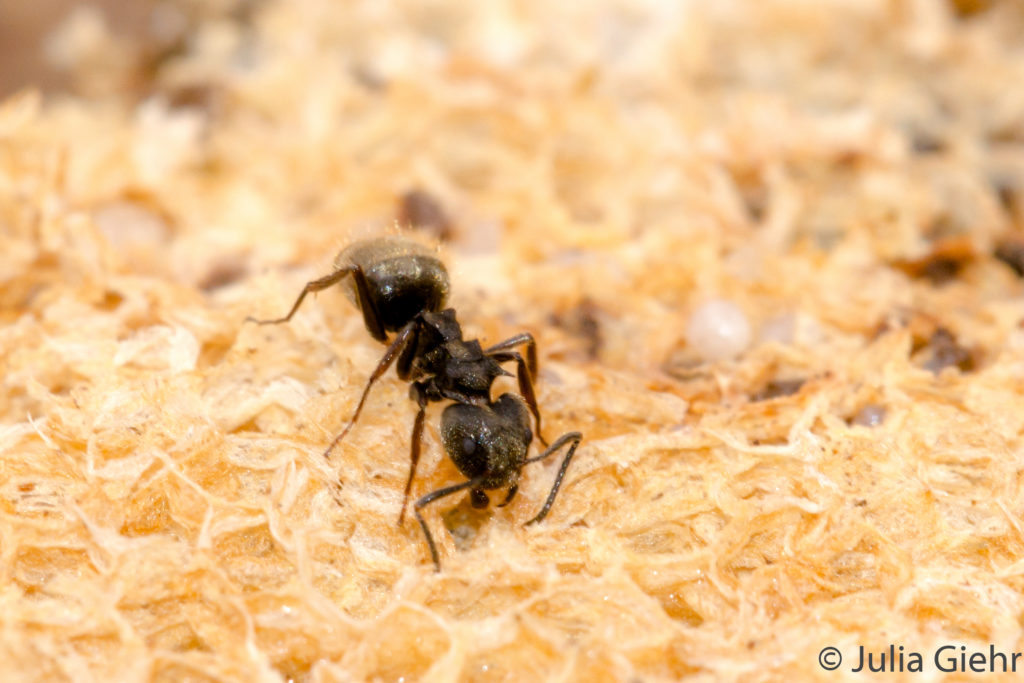




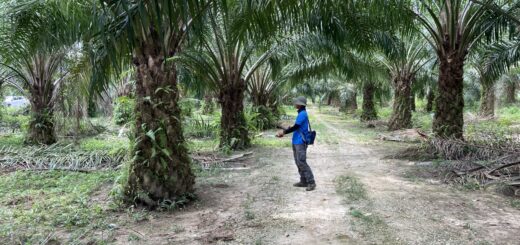
This may indicate that my sense of humor needs to lighten up a bit, but you were kidding about smuggling them back to the USA, right?
I don’t know what makes you think that I am from the United States; but yes of course, I was kidding.